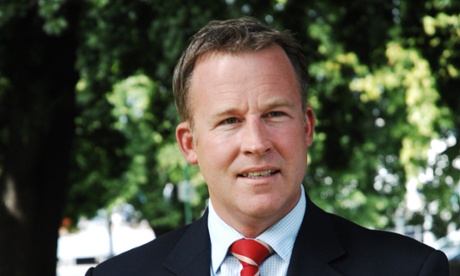
Tasmanian Liberal leader Will Hodgman has said the Coalition’s NBN policy could cost his party the state election, in an embarrassing pre-interview gaffe.
The lead-up to the Tasmanian election has seen fierce debate about the future of the NBN in the state, following federal communication minister Malcolm Turnbull’s plan to switch to a fibre-to-the-node network.
The plan is likely to deliver slower internet speeds in comparison to the previous federal government’s plan for fibre-to-the-premises connections.
In what appears to be an off-the-cuff remark, Hodgman said on Monday before a press conference in an aside to his shadow ministry colleague Jacquie Petrusma: “It could cost us the election. Anyway, that’s democracy.”
Later in the press conference Hodgman added: “My fundamental view is that this is a critical issue for Tasmania, I recognise that, and there are a number of issues that could cost any party the election.”
The comments follow a concession from Turnbull’s parliamentary secretary Paul Fletcher, who said at an IT forum on Monday that the Coalition’s estimate of the previous Labor government’s NBN plan “may have been a little high.”
An internal review costed the plan at $56 billion, rather than the $90 billion price tag the Coalition flagged in the lead-up to the federal election. The Labor government had estimated it would cost $37.4 billion.
NBN chairman Ziggy Switkowski said the rollout in Tasmania would begin using the existing copper network and that the fibre-to-the-premises rollout would not be completed.
“We’ve now agreed on a multi-technology mode, where we will seek to use existing copper network where we can,” he said.
Switkowski also rejected suggestions that the NBN network speeds would not be fast enough.
“I can appreciate given the way the NBN was originally positioned and the discussion about speeds, but the reality is that using the existing copper network, in this case, will give most people a speed experience vastly in excess of what they can actually use, and under the current plan that’s being developed, most Tasmanians will get access to higher speed earlier than would otherwise have been the case,” he said.

